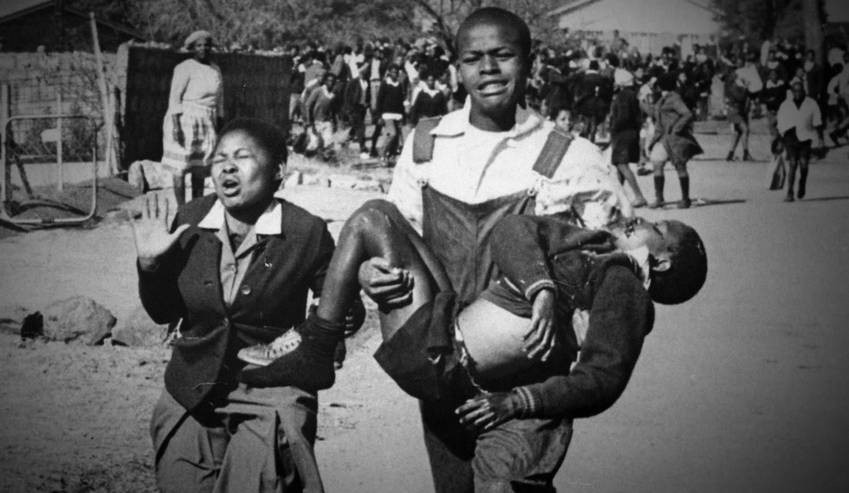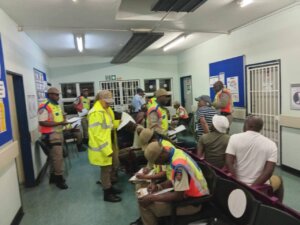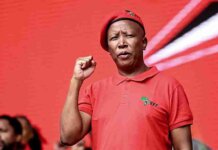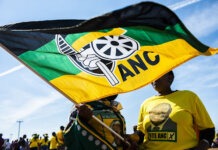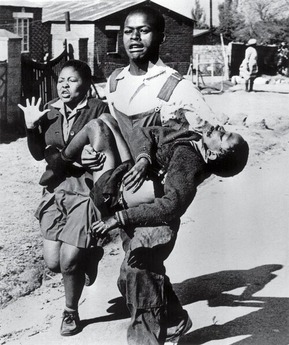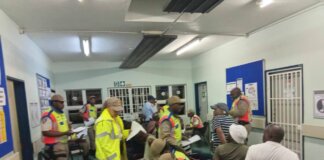By: R.M Mdingi
It was from the inexhaustible struggle of the poor people that black consciousness movement received first frugal nourishment and learned to walk, the struggle and national liberation struggle shaped its thinking, and the movement, the principal platform for students organization thundered so loud to give sleepless nights to reactionaries of every ilk, but restoring hope and demolish capitalism, racism and its apartheid structure.
The sharpness of our ideology and its resounding, accurate and implacable blow made oppressors, exploiters, the racists shake deep inside and our slogans and actions resounded through the muddy and turbulent nightmares of the apartheid capitalist government measures meant to decisively smash our uncompromising zeal for the complete emancipation. In response we put our own lives on the rear of the struggle and right called on our comrades to get ready for nothing less than a total bloody revolutionary war and challenge the monstrous and infamous genocide perpetuated by the South African defense force, the police and clandestine assassinators.
We called on our cadres, the sons and daughters of the wretchedly poor and oppressed to awfully hold sky high the banner of our ideology, be courageously heroic in the face of violence and pogroms by apartheid darlings.
Your commitment to Black Consciousness Movement thoughts pulls you closer to the edge of being killed, brings about great moral, political and the ideological orientation towards a completely radical world of war and conflict of exterminating of being exterminated war of killing to be free rather being killed oppressed. There is no better death than dying in your pursuit of freedom. Given martyrs like legendary characters, are part of the struggle from beyond the graves shining and teaching us today, tomorrow and forever to give. Live for the movement and the revolution.
Black Consciousness Movement fired up the Soweto revolt and the June 16, 2021 marks the 45th anniversary of Soweto uprising. The Soweto revolt was chiefly caused by the imposition of Afrikaans as a medium of instruction in African black schools, by the deposed Nationalist Party government’s department of Bantu Education. The imposition of Afrikaans was inexplicable short sighted bearing in mind that Afrikaners had decades earlier Lord Millers attempt to Anglicize them. It was fanatical shortsightedness to expect the imposition of their language without resistance.
The imposition of Afrikaans seriously undermined young blacks who over the years saw the derogatory way in which their parents were treated by the government officials. The formation of the South African Student Organization (SASO) by the likes of great intellectuals, martyrs and student activists from across various university campuses across spectrum led to the formation of Black Conscious Movement. Student leaders in the mould of the great Steve Bantu Biko, Seth Coopers, Muntu Myeza, Abraham “Onkgpotes Ramothibi” Tiro, Gomolemo Mokae, Patrick “let them dance” Molala. Peter Jones, Barney Pityana, Mapetla Mohapi were the pillars of 1976 student revolt.
The uprising would not have happened the way it without the deliberate political decision taken by Steve Biko and his comrades. The first sign that all was not well for the regime, came when the black people started to struggle for self-definition, choosing to use their African names instead of imposed European ones. Blacks started rejecting their oppressor’s history and value system choosing to accept and redefine their own humanity. BCM helped to unite oppressed, exploited people under one banner. Blacks were as those who were by law and tradition discriminated against economically and oppressed, socially degraded, and saw black solidarity as the first and necessary step towards achieving their freedom.
BCM position simply recognized where power resided and where it did not. The words of the great intellectuals student and political leader Onkgopotse Tiro are still relevant today. He gave us great words of encouragement in the struggle, words often attributed to Bantu Biko “it is better to die for an idea that will live than live for an ideal that will die”. In 1972 university student uprising placed hundreds of SASO activists in high schools throughout the country. Abraham Tiro, the teacher, the poet, the cultural activists, Fanyana Mazibuko became teachers at Morris Isaacson High School, the school from which Tsietsi Mashinini emerged.
The imposition of Afrikaans began to retard academic progress as pupils increasingly failed subjects taught in Afrikaans. Sporadic class boycotts began to gain momentum at the beginning of the school year of 1976. One of the several heartening events of the time occured in June 8 at Naledi High School, where two members of security police went to Naledi High to interrogate Enos Ngutshane. The pupils vehemently protested in the office of the principal NJK Molope. Telephones cut and pupils overturned the police car and set it alight. Police reinforcements were on the scene within minutes and the pupils were dispersed by teargas and rubber bullets.
After Naledi high incident a planning meeting was held at which it was decided that a protest march would take place on June 16 1976. Tsietsi Mashinini was elected first president of action committee formed at the meeting. The committee became the Soweto Student Representative Counsel. Other important figures at the meeting included Daniel Motsitsi. Len Mseko, Mufi Morobe, Seth Mazibukho, Sbongile Mthembe, Dan Motapanyana and Kgotso Seathlolo. Morris Isaacson should be noted as one of the many schools where students voiced their displeasure at the forced use of Afrikaans as medium of instruction. The uprising at Isaacson gave it a prominence greater than other schools that were frontrunners in the protests against Afrikaans. The youth of the 1970s entered the struggle fresh and right after the 1960s era whereby there was a political vacuum after the ANC/PAC and their prominent leaders jailed and others in exile. BCM also provided a banner under which the ethnic barriers within the African population and between African coloured and Indian people could be broken down and Karl Max explained in relation to the subjugation of the colonial peoples by imperialism this could continue only for as long as a sense of nationhood had not developed amongst the oppressed.
Moreover, despite the fact that the BCM distinguished enemy on basis of skin color, its provided a means by which a penetrating critiscm could be made of black petty bourgeoisi stoogies who were prepared to participate in the governments schemes of divide and rule over black working class. At a period when the reactionary role of Gatsha Buthelezi had not come to be understood. The youth of 176 class forced his unmasking compelling him to establish himself very rapidly as the enemy of the working class.
The proletarian school youth took the slogans of BCM out the university debating chambers and tested them in the field of the living struggle, accelerating debate about the adequacy of BCM as a guide to the nation.
Before the youth turned to the workers in 1976, they considered themselves a sufficient force to lead revolution. One of the chairmen of the SSRC by the name of Kgotso Seathlolo said at a time “we are not carbon copies of our fathers. Where they have failed we will succeed the mistake they made will never be repeated. They carried the struggle up to where they could. We are very grateful to them. But now the struggle is ours. The ball of .liberation is in our hands the black student will stand up fearless and take up arms against a political system”
Certainly, neither democracy nor equality Mr Seathlolo deserves your “absolute dedication”. Face to face with the murderous power of the state, and the capitalist system which it defended, the youth came to understand that their anger needed the piston engine of the movement of the workers in production to concentrate their struggle into a material force. The youth themselves were integral part of the working class. The reason for this were explained at the time in the marxist publication Militant International Review (Autumn 1977).
“it is important that we do not overstate (the extent of the influence of Black Nationalism on the African proletarian and that we distinguish clearly the “nationalism of the workers from that of the radical petit-bourgeoisie”. From the stand point of the African proletariat, their class exploitation is the primary fact of life. They very institutions of apartheid foremost among them the hated pass law] press upon the African workers essentially as measures designed to maintain the slave conditions of their labour.
The more advanced and experienced the worker, the more clearly he perceives the make shift character of Black power as a weapon of the working class struggle and the more insistently he demands on organization, a programme, a leadership that goes beyond it. The alternative to bourgeoisie democracy is offered by Lenin, he stated clearly “Proletarian democracy is hundred times better than more democratic than any bourgeoisie democracy. Proletariat democracy can only come about after revolutionary takeover of society by the proletariat. It also has a class character, a proletariat character represents the broadest and ever deeping participation of the formally oppressed and exploited masses in every sphere of the society. It requires the proletariat masterly affairs of state, of economic management, and other aspects of administration and in deed of superstructure as a whole including culture. Proletariat democracy is the democracy to the proletariat by the proletariat for the oppressed people of that a given country. It must never or could not be extended to the deposed former exploiters, oppressors, and the bourgeoisie. The bourgeoisie need no way democracy they need dictatorship. The socialist’s way of rule is simple give democracy to the masses, dictatorship to the profit hungry exploiters”.
Perhaps it could help recall Mao Tse Tung’s view and explanation of democracy as a means of democracy to an end. He stressed. “Those who demand freedom and democracy in the abstract regard democracy as an end and not as a means”. Democracy as such sometimes seems to be an end, but it is in fact only a means. Marxism teaches us that democracy is part of superstructure and belongs to the realm of politics. That is to say in the final analysis it serves the economic base. The same is true of freedom both democracy and freedom are relative not absolute and they come into being and develop into specific historical conditions.”
If therefore democracy is not absolute, then it can as well wither away. It can only do so once the oppressive relations in society are done away with. We will have a society that has nothing more than contradictions. Contradictions do not need state power, the police, class dictatorship to be squelched. Men and women could deal with them effectively as a part of the creative and revolutionary transformation of society and nature.
We the youth of 1976 do we have recommendation of how our society the country should be shaped under the banner of “freedom and democracy” and Black Consciousness Movement.
“South Africa does not need democracy, peace and fraternity as this can be a camouflage pf class exploitation. South African needs Freedom from bourgeoisie democracy, equality and fraternity. It needs a turbulent nightmare of working class liberation, the seizure of state power by the black proletariat democracy to the majority of black people (except black capitalist”).
Thus the truth and its underlying basis is of such fundamental importance that anyone who does not mention it, denies it is nothing more that the loyal defender and apologist of the existing order.
Long live the great proletariat socialist republic of Azanai forward with socialist programme against Neo Liberal capitalist policies of privatization, gear and capitalism down with imperialism and globalization.
-Edited by Lolly Mhlongo (Photo from ngopulse.org)

